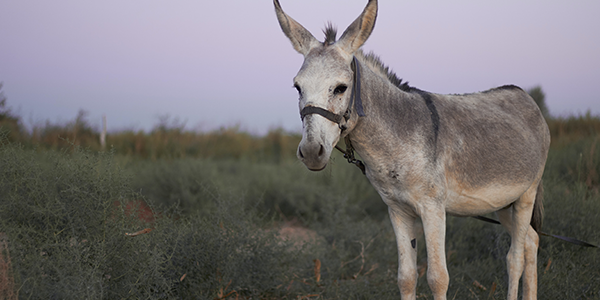Many people associate donkeys with horses, but they are very different. For example, donkeys have long ears and can hear the call of another donkey up to sixty miles away. They can also use them as a fan, cooling them down and keeping bugs away from their face. Continue reading for more donkey facts. Also, if you are looking for a horse property for sale in Colorado, contact Colorado Horse Property today and speak with one of our horse-person realtors.
Interesting Donkey Facts
Did you know that the digestive tract of the donkey is also different than a horse? Though they are anatomically similar, a donkey’s digestive tract can do a lot more. Donkeys evolved in the desert. Since food is more scarce in the desert, donkeys evolved to utilize ninety-five percent of the nutrients in what they eat. Their digestive system can break down vegetation that a horse’s tract can’t. They can also extract moisture from food much more efficiently than a horse. However, this doesn’t mean that donkeys can eat whatever a horse eats.
Horses eat a lot of grains. It is very common to find things like alfalfa and other grains mixed into store bought horse feed. Donkeys should never eat alfalfa that is found in carbohydrate, protein, or sugar feeds. Unless your donkey is experiencing weight problems, they don’t need any grains. Like some horses, most donkeys can become overweight very easily. They can even develop fat pads along their crest, back, and croup, which is very bad for their mobility.




Are donkeys considered livestock or equines for real estate purposes?
The short answer is it depends on the zoning of the county/city where the property is located. In some cases donkeys are considered livestock, similar to cattle, sheep, and goats. This classification is relevant for agricultural zoning and land use regulations. Properties used for breeding, raising, or caring for donkeys might qualify for agricultural exemptions or special zoning considerations. In some cases they are grouped with horses, mules, and ponies. This classification can be significant for equestrian-related property use, such as establishing riding stables, equine therapy centers, or other horse-related activities. For a more nuanced answer, feel free to talk to Mark Eibner (or resident horse property expert) at mark@realtyoasis.com and/or (720) 608-2613.